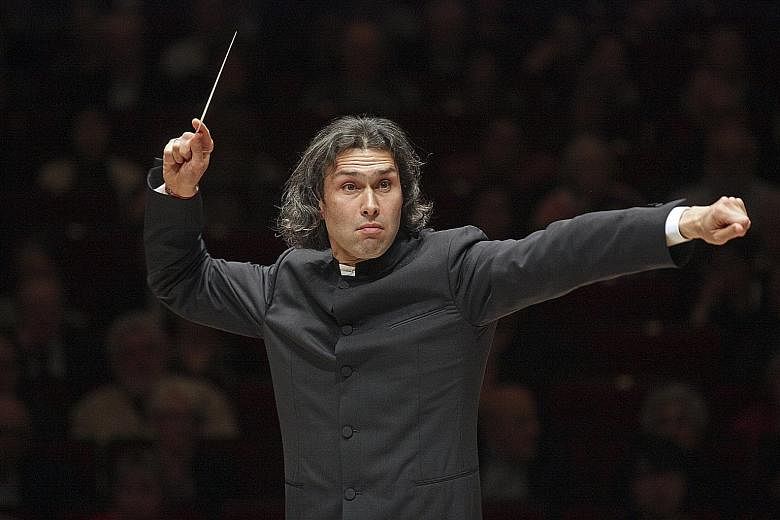BERLIN • The conductor Vladimir Jurowski has enjoyed a prodigious international career.
At only 24, he made his Royal Opera House debut in London, while also conducting at the Komische Oper Berlin.
He went on to become music director at the Glyndebourne Festival and, in a position he holds for four more seasons, principal conductor of the London Philharmonic. He has also been a regular guest at the Metropolitan Opera for nearly two decades.
It came as no surprise when, in April, he was named Conductor Of The Year at London's International Opera Awards.
The announcement came on the heels of his appointment as music director of the Bavarian State Opera in Munich - which was named Opera Company Of The Year - starting in 2021.
Known for his scrupulous rehearsal methods and programmes that combine academic rigour with a sense of adventure, Jurowski, now 46, was, until last Monday, conducting the original version of Mussorgsky's Boris Godunov for the first time in the history of the Opera de Paris.
He is also spending more time in Berlin, where he emigrated with his family from Moscow at age 18. His father is conductor Michail Jurowski.
As principal conductor and artistic director of the Berlin Radio Symphony Orchestra since last autumn, he has injected energy into an institution that did not always occupy the foreground of the German capital's dense classical musical life.
The following interview has been edited and condensed.
Does the commitment to both the Radio Symphony and the Bavarian State Opera signal a new phase in your career?
Although the centre of my professional career has been in London, Glyndebourne or elsewhere, my private life was always in Berlin. It was only natural to think about making my life more normal and less nomadic when my youngest son began attending school.
I never actually aspired to become the principal conductor in a big opera house. I've had invitations, including from the Bolshoi (Theatre), and always declined.
It was only recently - perhaps naturally, as my age advances - that I started feeling lonely without my own theatrical home. And the opportunity in Munich arose. So I sort of broke my own mould.
Why is the house a good fit?
We had great chemistry when I conducted Prokofiev's Fiery Angel (in 2015), which had yet to be staged in Munich's history.
The musicians and audience seem quite open to unknown repertoire. And then you consider how many other operas of the 20th century have never been performed there.
I would also love to put my knowledge to the service of a dance theatre. We've become very free and bold with opera - there is no question anymore as to whether it is appropriate to update Shakespearean tragedies - so I think we need to change our minds about ballet. (The works of) Tchaikovsky, Prokofiev, Ravel or Stravinsky are absolutely up there with the greatest operatic achievements of all time.
What led you to choose the original version of Boris Godunov for your production in Paris?
There is a substantial difference between the two versions. The second leans more towards a grand-opera style, while the first is a radical music drama that looks forward to the 20th and 21st centuries.
This version became available in 1997. Mussorgsky composed his second version onto the manuscript of the first, so it took years of musicological expertise and modern chemical analysis to determine which was which.
When I conducted it three years ago at the Mikhailovsky Theatre in St Petersburg, I was overwhelmed by the score's modernity and decided I had to do it again. Once was not enough to recognise its beauties and work them out so the audience can appreciate them.
Your choice of repertoire often challenges listeners to rethink historic connections, not least in recent concerts with the Radio Symphony. What are your goals there?
I felt it was my duty to draw people's attention in a more concentrated manner to music which they've been rather neglecting over the years because my predecessor - a great conductor, Marek Janowski - had a certain taste. He did a huge variety but, let's say, Shostakovich and the Second Viennese School and also Mahler were never in focus. I think we've managed to wake people from their beauty sleep and make them curious about what's next.
NYTIMES

